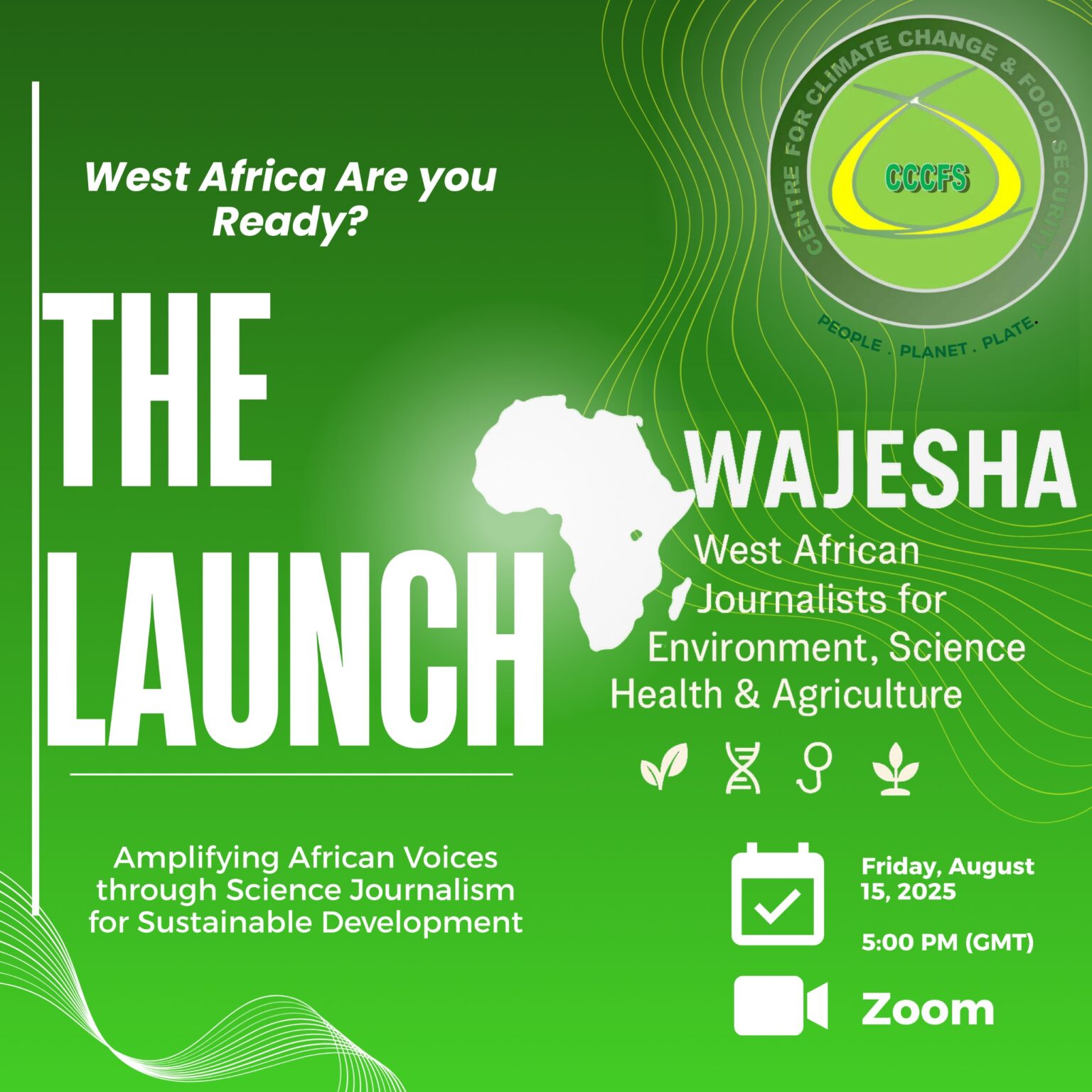West Africa’s media landscape has been put under the spotlight, with experts warning that climate journalism in the region remains weak, underfunded, and largely overlooked. The concerns were raised during the virtual launch of the West African Journalists for Environment, Science, Health, and Agriculture (WAJESHA), held on Friday, August 15, 2025.
The new non-profit network, spearheaded by the Centre for Climate Change and Food Security (CCCFS), seeks to fill the gap by empowering journalists to produce science-driven, impactful stories on issues that directly affect millions of people in the region.
Speaking at the launch, Mr. Nii Commey, Head of Communication at the West African Science Service Centre on Climate Change and Adapted Land Use (WASCAL), described climate reporting in Africa as “limited, reactive, and event-driven.” He revealed that in Nigeria, less than 0.1 percent of media content is devoted to climate change, with most reports echoing government press releases or international news wires.
“We need to bridge the gap between research and journalism so that our stories are backed by data and science, not just press releases,” Commey said, urging for more investment in specialist journalists and newsroom support.
Officially unveiling WAJESHA, Engr. Mahmud Mohammed-Nurudeen, Executive Director of CCCFS, said the project was born out of “necessity after years of rejection from international funders.” According to him, millions across West Africa face the realities of climate change, food insecurity, pollution, and fragile health systems, yet their stories are often ignored.
“WAJESHA exists because we refused to give up after being denied funding. If journalists don’t tell these stories, who will?” he remarked.
The event featured goodwill messages from experts across Africa and Asia. Dr. Beatrice Wiafe Addai, CEO of Peace and Love Hospitals and President of Breast Care International (Ghana), called for journalists to give the same attention to health and agriculture that politics and sports receive. She challenged WAJESHA members to uphold inclusivity, accountability, and integrity in their reporting.
Similarly, Mr. Assane Diouf of the African Population and Health Research Center (Kenya) emphasized the need to “humanize climate data,” showing how changing weather patterns impact maternal health, food production, and even migration. From India, Mr. Richard Mahapatra, Managing Editor of Down to Earth, stressed that local environmental stories are global stories, adding that investigative journalism must expose the injustices that make poor regions bear the brunt of climate change.
Earlier, WAJESHA fellows who had benefited from biodiversity training shared how the program helped them link scientific data with local voices and policy issues in their reporting.
Speakers concluded that WAJESHA’s launch is a timely intervention to unite journalists across borders, amplify indigenous knowledge, and strengthen accountability in climate and development reporting.
As Engr. Mahmud put it in closing: “We are not just writing stories; we are writing the future.”


